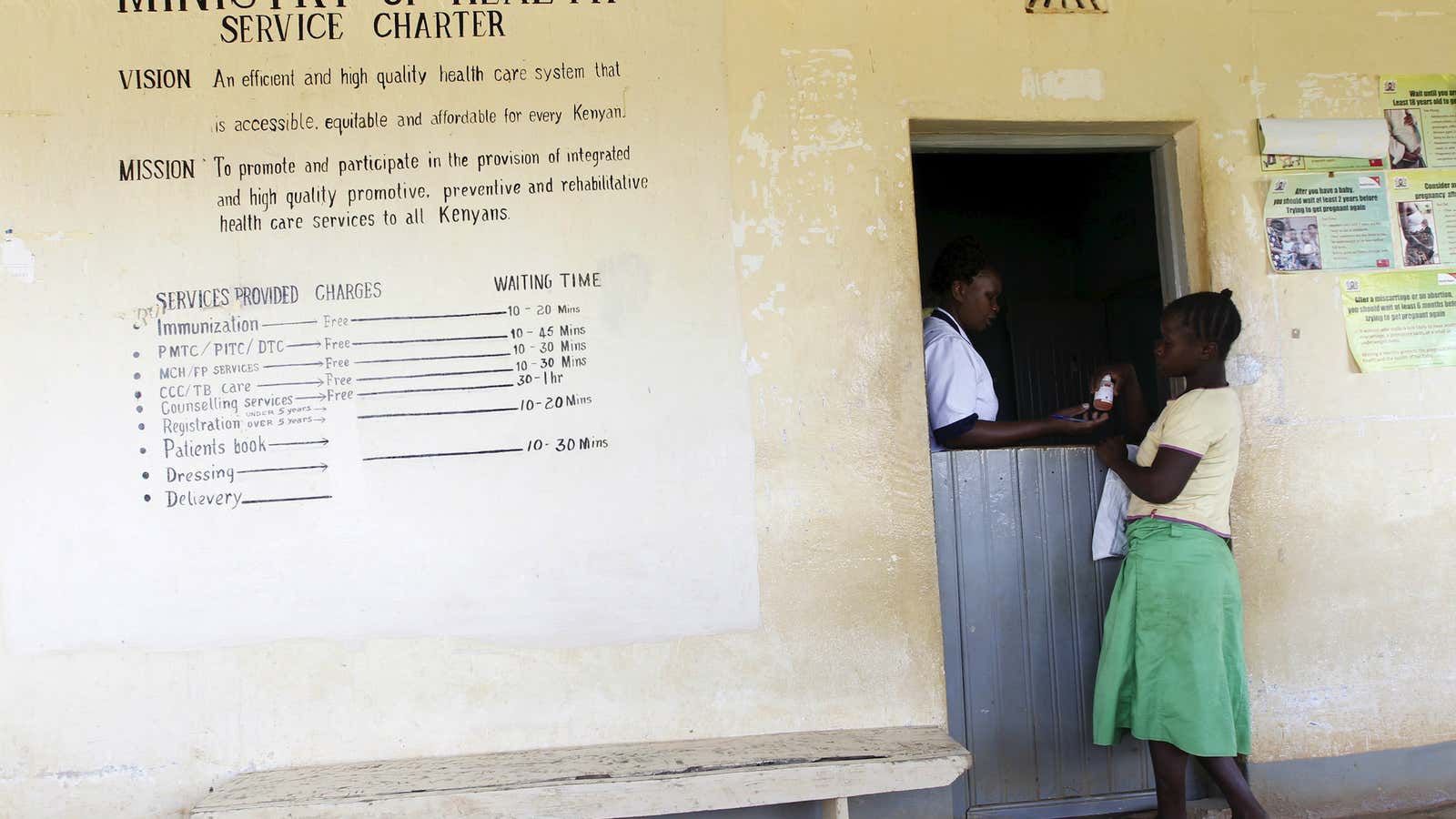More people are living longer but not necessarily healthier lives.
Global life expectancy has risen by an average of 6.2 years over the last two decades, according to a new study published in The Lancet. But healthy life expectancy, a metric that takes into account years lived with disability or disease, only rose by 5.4 years over the same period to 62.3.
Life expectancy at birth was 71.5 in 2013, up from 65.3 years in 1990, according to the analysis of 188 countries done by a consortium of researchers led by the Institute for Health Metrics and Evaluation at the University of Washington. That increase is thanks to declines in deaths caused by HIV, malaria, infectious diseases, and nutrition deficiencies. The increase is also one aspect of what public health researchers call the world’s ongoing “epidemiological transition” as populations expand and age because of medical advances.
The trend is also evident in sub-Saharan Africa where the number of years one can expect to live has increased in most regions. In Ethiopia, where child mortality rates have been falling, life expectancy for men rose by almost 16 years to 61.4 in 2013 from 45.5 in 1990. For women it rose by 10 years. Healthy life expectancy increased more than double the global average, by 13.5 years, to 54.3 years. “Ethiopia has made impressive gains in health over the past two decades, with significant decreases in rates of diarrheal disease, lower respiratory infection, and neonatal disorders,” said Dr. Tariku Jibat Beyene of Addis Ababa University. “But ailments such as heart disease, COPD, and stroke are causing an increasing amount of health loss.”
In fast-growing Rwanda, life expectancy for men has grown by 21 years to 62.9 in 2013 and 16.5 years for women, to 67.5. In Kenya, East Africa’s largest economy, it has risen by just one year for men, to 63 and for women by 3.5 years to 67.5.
In Southern Africa however, life expectancy as well as healthy life expectancy is falling. In Lesotho and Swaziland, those born in 2013 will enjoy on average 10 fewer years of healthy living than residents born in 1990. In South Africa, one of the continent’s most developed economies, life expectancy has fallen since 1990, with HIV, stroke, and pneumonia accounting for a little over half of deaths in 2013. According to study published in the Lancet, life expectancy for men fell to 58 in 2013, from 61 in 1990, for women it fell to 63 from 69.
